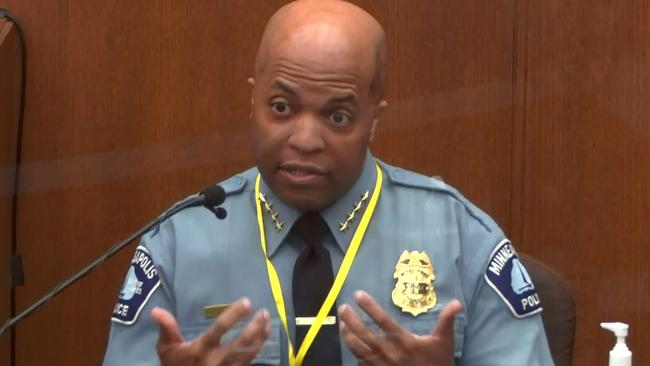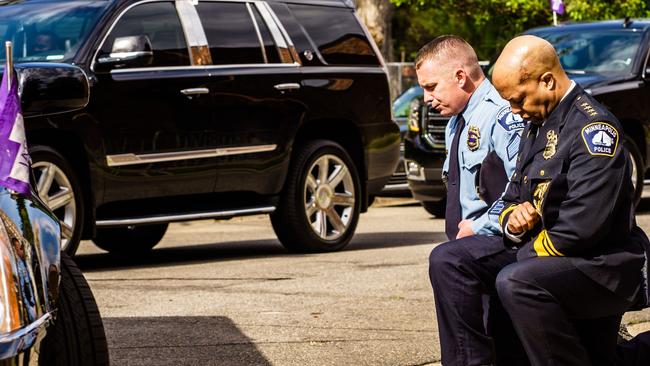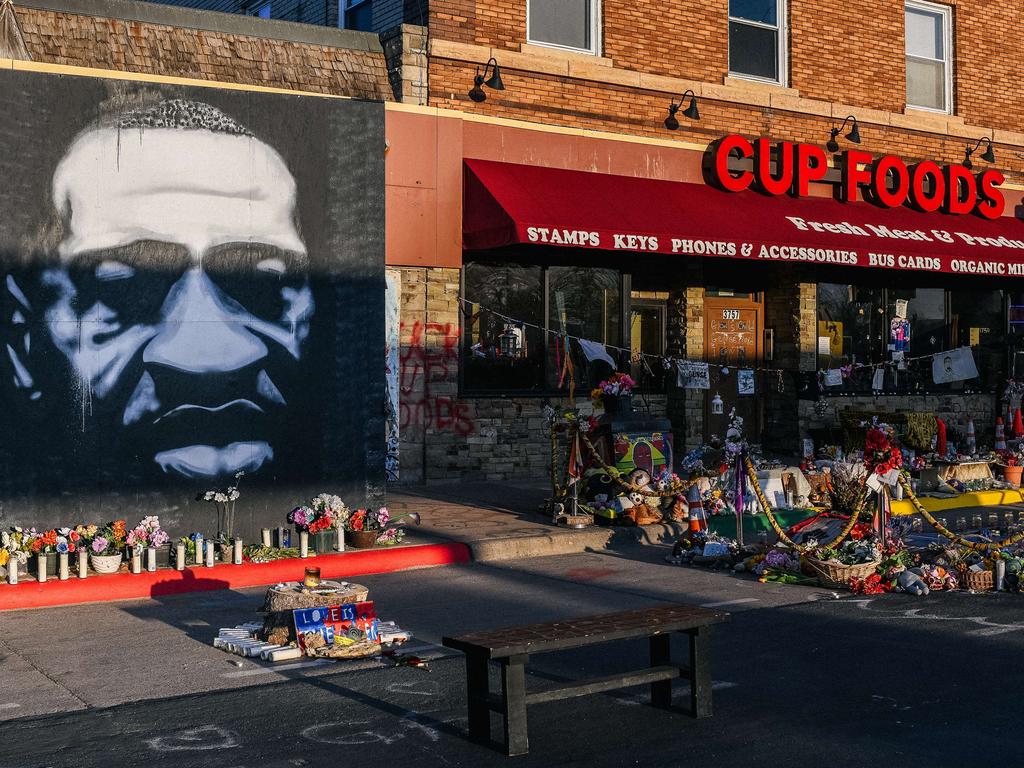George Floyd trial: Accused cop ignored all his training, police chief tells court
Accused killer cop Derek Chauvin’s former boss has testified against him in George Floyd trial.

The George Floyd murder trial heard the head of the Minneapolis police force give evidence against one of his own officers on Monday.
Testifying against Derek Chauvin, Medaria Arradondo said his officers were required to minimise their use of force and treat everyone with dignity and respect. Officers must assess whether resistance to arrest was deliberate or due to a “behavioural crisis”, Arradondo told the jury on the sixth day of Chauvin’s trial.
Arradondo, 54, is regarded as a star witness for the prosecution. A day after Floyd’s death he fired Chauvin and three other officers.
Earlier on Monday, the hospital doctor who tried to save Floyd for 30 minutes said he probably died from asphyxia and said he had discounted drugs or a heart attack as a likely cause.
Chauvin, 45, denies second-degree murder and manslaughter and third-degree murder after kneeling on Floyd’s neck for nine minutes and 29 seconds while he was handcuffed and pinned to the ground last May.

Police had been called because Floyd used a fake $US20 note. Arradondo told the court that passing a forged banknote would not typically be an arrestable offence.
Arradondo agreed that choke holds and neck restraints — described as pressure by an arm or leg on the side of the neck — were permitted by force policy at the time of Floyd’s arrest against subjects who were “actively” but not “passively” resisting.
Bradford Langenfeld, an emergency room doctor who pronounced Floyd dead, testified that the man had no pulse when he arrived at Hennepin County Medical Center. He told the court that he tried various methods to revive Floyd, after 30 minutes already spent by paramedics en route to the hospital, in contrast with the failure of police to administer emergency care.
He was asked if there were signs of “excited delirium” which might indicate a drug overdose. “Certainly there was no indication the patient was very sweaty which is often the case with excited delirium,” Langenfeld said.
“There was no report that Mr Floyd had ever been extremely agitated.”
Under cross examination by the defence Langenfeld conceded that certain drugs, including fentanyl and methamphetamine, could cause a loss of oxygen to the brain. Both drugs were found in Floyd’s body and Chauvin’s defence rests on the claim that he did not die because of Chauvin’s knee on his neck but from a heart attack brought on by drugs combined with heart disease, high blood pressure and adrenaline.
The trial continues.
The Times
More Coverage







